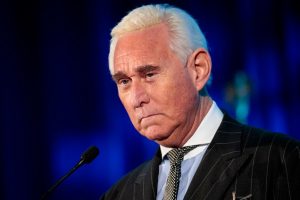
Advocate Thabani Mpofu
Mpofu is accused of obstructing the course of justice after he allegedly represented in court a nonexistent person who was allegedly challenging President Emmerson Mnangagwa’s appointment of Prosecutor-General Kumbirai Hodzi. Below is the association’s statement which was issued before Mpofu was granted $20 000 bail on Wednesday.
1. The Southern African Development Community Lawyers’ Association (SADC-LA) condemns the acute escalation of the harassment and intimidation of lawyers in the region. The most recent of which is the curious arrest of Advocate Thabani Mpofu in Zimbabwe. There remains a sustained trajectory of attacks on the independence of the legal profession in the region.
2. SADC-LA is deeply concerned about the manner of arrest and further detention of Advocate Thabani Mpofu in circumstances that show deployment of excessive state force. In this regard, Advocate Thabani Mpofu’s home was besieged by 11 armed police on 31 May 2020 and the deployment of a special Police Anti-Corruption unit against a single and cooperative legal practitioner indicates use of excessive force. Advocate Mpofu handed himself over to the police in the company of his lawyer Beatrice Mtetwa on 1 June 2020. Presently, he is detained at Rhodesville Police Station in circumstances where he is cooperating but the police have unusually elected to use maximum means of restraining him.
3. SADC-LA notes that the use of excessive force in this matter and preference of charges that constitute a matter which is sub judice is a travesty of justice and an affront to the rule of law. Further, that there is a submission pointing to the fact that the state is aware of the existence of which litigant it claims is fake. At the time of releasing this statement, a third and equally frail charge had been preferred on him concerning the irregularity of the source of fees paid to Advocate Mpofuin respect of a different matter. In all instances, Advocate Mpofu as an Advocate would have never come into contact with individual clients or their funds but with instructing attorneys who could have been responsible for both client and payment.
4. In the premises the proceedings deployed by the state appear to the SADC-LA to be prima facie a deliberate attempt tp victimise and intimidate a lawyer who was acting in the course of his professional mandate. An act that unlawfully associates a lawyer with the cause of his client.
5. We seek urgent assurance from the Committee of Ministers of Justice and Attorneys General of SADC that the independence of the legal profession still remains guaranteed in the constitutions of member states, Further that the regional body will remind the political leadership of SADC of their duty to take measures to ensure that lawyers involved in the complaint or in the investigation of human rights violations are protected against ill-treatment, intimidation or reprisals.
6. The Association stands with the legal profession of Zimbabwe and all concerned citizens in calling for the immediate response of the Zimbabwean government to guarantee the safety and security of Advocate Thabani Mpofu and all legal practitioners, and to ensure that due process is carried out in a fair and proportionate manner.
Post published in: Featured











